2
Programmes, entry and fees

Master of Professional Accounting (MProfAcctg)
The Master of Professional Accounting is an 18-month coursework masters degree programme designed to prepare graduates for a career in accounting. You will acquire knowledge and skills in business, accounting, finance, commercial law and taxation.
The programme is recognised by key professional accounting bodies, including Chartered Accountants Australia and New Zealand (CAANZ), CPA Australia, the Association of Chartered Certified Accountants (ACCA) and Chartered Institute of Management Accountant CIMA.
The Master of Professional Accounting will be offered next in Quarter Four (September) 2023.
Career prospects
With a Master of Professional Accounting you will have the skills and knowledge required to launch a career as an accountant with a chartered accountancy practice, industry or the public sector.
Likely roles include:
- Auditor
- Tax Specialist
- Management Accountant
- Systems Accountant
- Business Adviser
The 18-month Master of Professional Accounting is recognised as providing the academic preparation for graduates seeking to qualify as chartered accountants or certified practising accountants.
The programme is a recognised pathway for provisional membership of the Chartered Accountants Australia and New Zealand (CAANZ) and is accredited by CPA Australia as a programme meeting the requirements for associate membership.
In addition, the programme is recognised by the Association of Chartered Certified Accountants (ACCA) and students who have completed the Master of Professional Accounting qualify for the maximum nine exemptions. Graduates of this programme are also offered a fast track to Chartered Institute of Management Accountant (CIMA) membership through the Masters Gateway Assessment.
For more information about the additional practical experience and study module requirements for becoming a Chartered Accountant, please refer to the membership body websites.
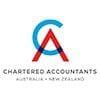 Chartered Accountants Australia and New Zealand provide information about the CAANZ pathway.
Chartered Accountants Australia and New Zealand provide information about the CAANZ pathway.Visit the CAANZ website
Visit the CPA Australia website
Degree structure
iThe Master of Professional Accounting is an 18 month, 240-point programme studied over six quarters. You will study core business courses before continuing on to study a set of specialised Accounting courses.
You will also complete a professional development module as an important component of your degree. This will equip you with the professional skills that you will need to enhance your employability and success in the business world.
Course information for current students is available on the Business School website.
Courses
Core
| Course code | Course title | Points | Description |
|---|---|---|---|
| BUSMGT 711 | Managing People and Organisations | 15 | Focuses on the foundations of organisational behaviour and managing within the workplace. Examines the challenges that managers and leaders face in managing people and organisations. |
| BUSMGT 712 | Principles of Business Analytics | 15 | Focuses on fact-based and data-driven decision making in a volatile, uncertain, complex, and ambiguous (VUCA) world. Examines decision biases and tools to overcome decision making under VUCA. |
| BUSMGT 713 | Financial Reporting and Control | 15 | Focuses on essential accounting knowledge for effective resource allocation and for quantifying, assessing, and communicating information about the health of the enterprise. |
| BUSMGT 714 | Economics for Managers | 15 | Examines attributes and behaviours of consumers, firms, markets and institutions and their impacts on the macroeconomy. Focuses on the micro and macroeconomic aspects of market actors from a managerial perspective. |
Specialisation
| Course code | Course title | Points | Description |
|---|---|---|---|
| BUSMGT 731 | Financial Reporting and Accounting | 15 | Provides an overview of financial accounting principles within New Zealand and the understanding and application of New Zealand Financial Reporting Standards. Focuses on the role financial statements play in investment, analysis and contracting decisions. |
| BUSMGT 732 | Business Finance | 15 | Examines the functions of the markets for real and financial assets, and their valuation. Focuses on the various techniques that financial managers can create wealth for shareholders and stakeholders. |
| BUSMGT 707 | Professional Development | 15 | Develops key interpersonal strategies and communication skills to become an agile, reflective professional and to manage the professional self effectively and cooperatively in a range of business environments. Enhances the emerging manager’s ability to lead and influence others in both cross-cultural contexts and uncertainty. |
| BUSMGT 733 | Analysing Financial Statement | 15 | Focuses on the analysis of financial statements and the assessments of an organisation’s performance. Develops an understanding of appropriate tools and techniques used to measure and assess risk and value. |
| BUSMGT 735 | Management Accounting | 15 | Design and management of revenue and cost management systems. Analysis of budgets and standard, costing system, cost systems for decision-making and control, performance appraisal, and contemporary related issues. |
| BUSMGT 708 | Communicating Business Insights | 15 | Equips students with the ability to utilise data visualisation tools and techniques in crafting and adapting data communication strategies for different types of audiences. Develops critical evaluation of the presentation of data and the implications for ethical communication. |
Advanced specialisation
| Course code | Course title | Points | Description |
|---|---|---|---|
| BUSMGT 734 | Strategic Management Accounting | 15 | Critically analyses the role of strategic management accounting in facilitating strategic decision making and sustainable value creation. Evaluates strategic cost management tools and techniques, budgetary control systems and performance measurement through an applied research project. |
| BUSACT 701 | Commercial and Corporate Law | 15 | Examines the impact of the law on decision making and management of an organisation. Develops the ability to identify legal requirements, issues and mechanisms critical to managing the risk/reward profile of the firm and achieving its strategic objectives. |
| BUSACT 702 | Accounting Information Systems | 15 | Examines the process of development and distribution of accounting information for decision making. Emphases will be on the role of accounting information, business processes, system mapping and documentation through data flow diagrams and flowcharts, transaction cycles, and control of risk. |
| BUSACT 703 | Taxation for Business | 15 | Provides an overview of the Income Tax Act and the Goods and Services Tax Act and how they are relevant to taxpayers. Topics covered include the nature of income, taxation of common types of income, the deduction and prohibition of various types of expenses, tax accounting issues, provisional tax, rebates, PAYE system, tax returns, and an introduction to GST. |
| BUSACT 704 | Auditing for Business | 15 | Provides an understanding of the audit of financial statements that lends support to their credibility. Emphases will be on the audit process, including the planning stage to the issuing of the audit opinion. |
| BUSACT 705 | Capstone Project for MProfAcctg | 15 | Provides opportunities to extend and integrate the understanding of theoretical and practical issues in accounting through a ‘real-world’ business case. Involves the assessment of risk, cost of capital, financial analysis of performance, forecasting, and the development of recommendations for change and/or improvement. |
Advancing in the programme: To progress into one of the specialisations in the third quarter students much achieve a B- average in the four core courses. To continue into the advanced specialisations students need a B average in their specialisation.
Exit pathway: If you are unable or choose not to continue with your masters programme, you may apply to reassign courses passed towards the Postgraduate Certificate in Management or Postgraduate Diploma in Management. For more information email businessmasters@auckland.ac.nz.
Entry requirements
All our Business Masters degrees are pre-experience coursework programmes. This means that applicants require little or no work experience to gain entrance into these programmes.
Academic requirements
To gain entry you will need to have completed a bachelors degree from a recognised university or learning institution with the equivalent of at least a New Zealand B average in the most advanced courses. This can be either a degree in business* or a non-business degree in a relevant discipline such as the arts, engineering, technology, or science.
In assessing your application we will take into account the ranking of the institution at which you completed your bachelors degree as well as the grades achieved in the relevant subjects. For indicative entry scores by country please see the table below.
| Country | Entry score |
| Australia | Credit average |
| Brazil | 7.0/10 |
| Canada | 3.3/4.3 |
| Chile | 5.0/7 |
| China (211/985) | 75% |
| China (non-211/985) | 80-85% |
| Colombia | 3.5/5 |
| Denmark | 8.0/13 |
| France | 12.0/20.0 |
| Germany | 2.8/5 |
| Hong Kong | 3.0/4 |
| India | First Class |
| Indonesia | 3.0/4 |
| Iran | 14/20 |
| Israel | 65/100 |
| Italy | 80/110 |
| Japan | 70/100 |
| Korea | 3.0/4.5 |
| Kuwait | 3.0/4 |
| Malaysia | 3.0/4 |
| Netherlands | 7.0/10 |
| New Zealand | B average |
| Philippines | 85/100 |
| Saudi Arabia | 3.5/5 |
| Singapore | 3.5/5 |
| South Africa | 65-70/100 |
| Sri Lanka | 60-65/100 |
| Taiwan | 75/100 |
| Thailand | 3.0/4 |
| UK (Honours) | 2.1 |
| USA | 3.0/4 |
| Vietnam | 7.0/10 |
Note: These scores are indicative only and subject to review.
*Applicants who have completed advanced course(s) in an undergraduate degree which are considered substantially similar to courses in this programme will be required to complete substitute course(s). Advice will be provided to students on a case-by-case basis.
| Country | Entry score |
| Australia | Credit average |
| Brazil | 7.0/10 |
| Canada | 3.3/4.3 |
| Chile | 5.0/7 |
| China (211/985) | 75% |
| China (non-211/985) | 80-85% |
| Colombia | 3.5/5 |
| Denmark | 8.0/13 |
| France | 12.0/20.0 |
| Germany | 2.8/5 |
| Hong Kong | 3.0/4 |
| India | First Class |
| Indonesia | 3.0/4 |
| Iran | 14/20 |
| Israel | 65/100 |
| Italy | 80/110 |
| Country | Entry score |
| Japan | 70/100 |
| Korea | 3.0/4.5 |
| Kuwait | 3.0/4 |
| Malaysia | 3.0/4 |
| Netherlands | 7.0/10 |
| New Zealand | B average |
| Philippines | 85/100 |
| Saudi Arabia | 3.5/5 |
| Singapore | 3.5/5 |
| South Africa | 65-70/100 |
| Sri Lanka | 60-65/100 |
| Taiwan | 75/100 |
| Thailand | 3.0/4 |
| UK (Honours) | 2.1 |
| USA | 3.0/4 |
| Vietnam | 7.0/10 |
Note: These scores are indicative only and subject to review.
*Applicants who have completed advanced course(s) in an undergraduate degree which are considered substantially similar to courses in this programme will be required to complete substitute course(s). Advice will be provided to students on a case-by-case basis.
English requirements
Our Business Masters programmes are taught entirely in English. You must therefore be able to understand, speak and write English fluently. To be eligible for entrance, international students must achieve:
- Academic IELTS 6.5, with no band less than 6.0, or;
- TOEFL (paper-based) 575 (TWE 4.5), or;
- TOEFL (internet-based) 90 (written 21), or;
- Foundation Certificate in English for Academic Purposes (FCertEAP) B-, or;
- English Pathway for Postgraduate Studies (EPPS) B-;
- PTE Academic 58, with no PTE communicative skills score below 50.
If your English does not meet the required standard, our English Language Academy offers the following courses:
- For students who need to increase their English IELTS score by 0.5: English Pathway for Postgraduate Studies (EPPS)
- For students who need to increase their English IELTS score by 1.0: Foundation Certificate in English for Academic Purposes (FCertEAP)
Fees and scholarships
Fees
Fees are set in advance of each calendar year and will be updated on this website. All fees are inclusive of 15% GST, but do not include the student services fee, course books, travel and health insurance, or living costs.
Amounts shown are indicative only. In addition to the tuition fees, there is a Student Services Fee of $8.38 per point, estimated at $1,257.00 for full-time study (150 points). Fees will be confirmed upon completion of enrolment into courses.
*Please note: amounts shown are indicative and estimates only.
| International students (NZ$) | Domestic students (NZ$) | |
|---|---|---|
| Master of Professional Accounting | $87,816 | $37,824 |
Scholarships
Scholarships are open to admitted students for any of the Business Masters programmes offered by the University of Auckland. The basis of selection will be academic merit and a written statement covering career goals and motivation.
University of Auckland Business Masters Scholarships (International)
The main purpose of the scholarships are to support international students to gain the skills and knowledge required to launch a business career by completing a Master of Management or Master of Professional Accounting degree at the University of Auckland Business School. A key objective is to enhance the diversity of the class profile.
- Tenure: Up to one year
- Amount: Up to $32,000 each
- Open to nationality: All nationalities
- Further details: Visit this link for more information including how to apply
University of Auckland Business Masters Scholarships (Domestic)
The main purpose of the scholarships are to support domestic students to gain the skills and knowledge required to launch a business career by completing a Master of Management or Master of Professional Accounting degree at the University of Auckland Business School.
- Tenure: Up to one year
- Amount: Up to $16,000 each
- Open to nationality: New Zealand citizen/permanent resident/Australian
- Further details: Visit this link for more information including how to apply
Key dates
The University of Auckland Graduate School of Management operates on a rolling admissions basis. This means that you can apply for entry into your chosen programme up to 12 months before the programme start date.
Intake dates:
September 2023
International students must apply by 1 July 2023
Domestic students must apply by 1 August 2023
April 2024
International students must apply by 1 Feb 2024
Domestic students must apply by 1 March 2024
Late applications may be considered subject to the availability of places.
Start dates:
The programme is delivered in quarters. Each quarter is 10 weeks long followed by a two week break. There are four quarters per calendar year.
An orientation week will be held for each new intake of students. It is an essential part of your learning journey and has been designed to help you to develop the skills and strategies you will need for a successful transition into your studies.



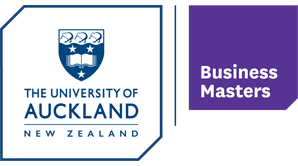





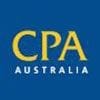
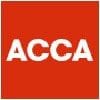
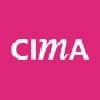

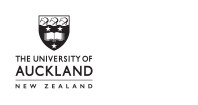
 .
. 

 .
. 
